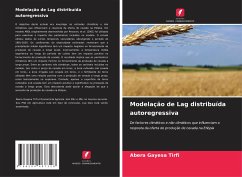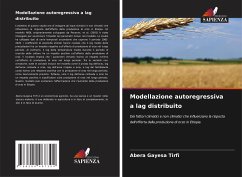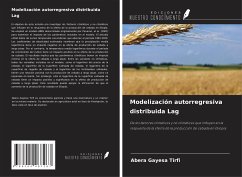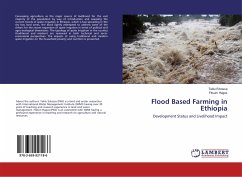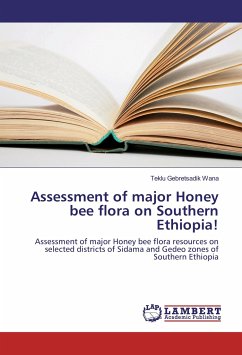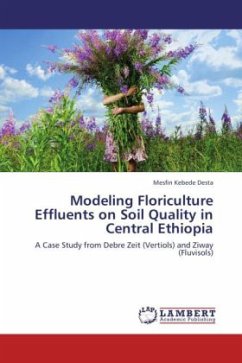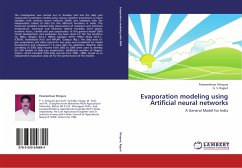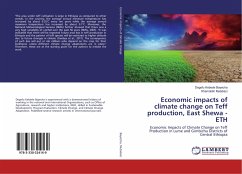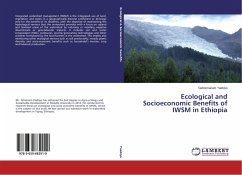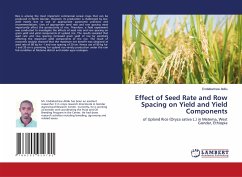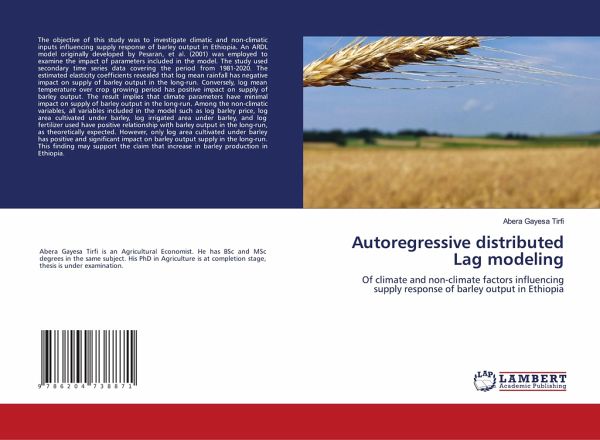
Autoregressive distributed Lag modeling
Of climate and non-climate factors influencing supply response of barley output in Ethiopia
Versandkostenfrei!
Versandfertig in 6-10 Tagen
29,99 €
inkl. MwSt.

PAYBACK Punkte
15 °P sammeln!
The objective of this study was to investigate climatic and non-climatic inputs influencing supply response of barley output in Ethiopia. An ARDL model originally developed by Pesaran, et al. (2001) was employed to examine the impact of parameters included in the model. The study used secondary time series data covering the period from 1981-2020. The estimated elasticity coefficients revealed that log mean rainfall has negative impact on supply of barley output in the long-run. Conversely, log mean temperature over crop growing period has positive impact on supply of barley output. The result ...
The objective of this study was to investigate climatic and non-climatic inputs influencing supply response of barley output in Ethiopia. An ARDL model originally developed by Pesaran, et al. (2001) was employed to examine the impact of parameters included in the model. The study used secondary time series data covering the period from 1981-2020. The estimated elasticity coefficients revealed that log mean rainfall has negative impact on supply of barley output in the long-run. Conversely, log mean temperature over crop growing period has positive impact on supply of barley output. The result implies that climate parameters have minimal impact on supply of barley output in the long-run. Among the non-climatic variables, all variables included in the model such as log barley price, log area cultivated under barley, log irrigated area under barley, and log fertilizer used have positive relationship with barley output in the long-run, as theoretically expected. However, only log area cultivated under barley has positive and significant impact on barley output supply in the long-run. This finding may support the claim that increase in barley production in Ethiopia.



